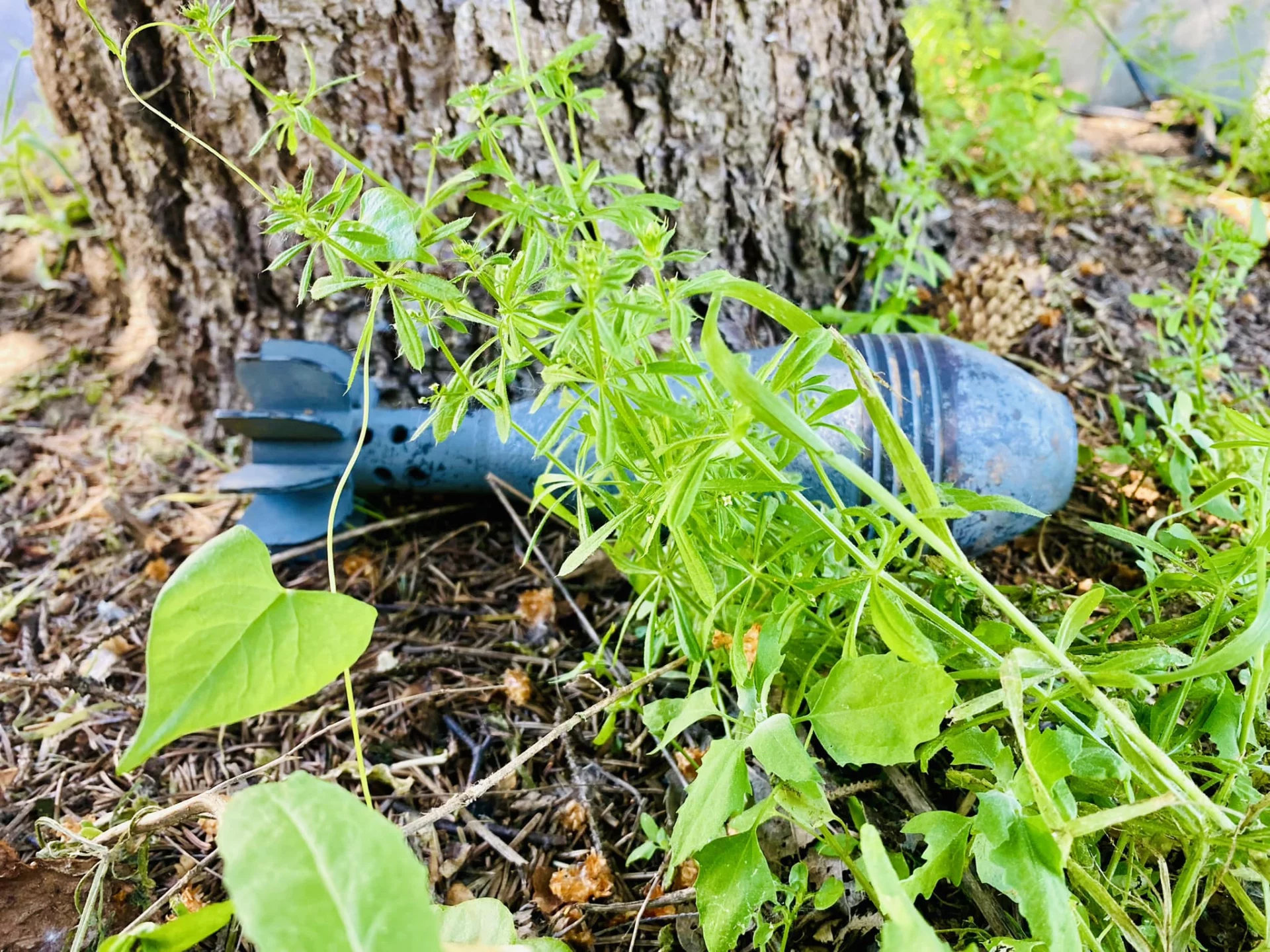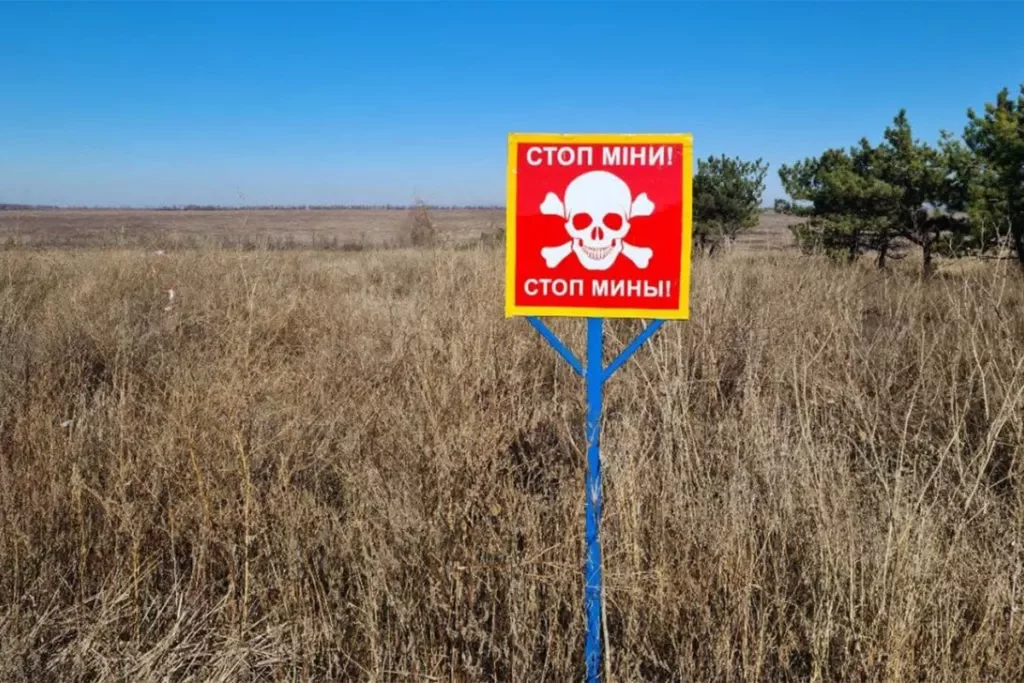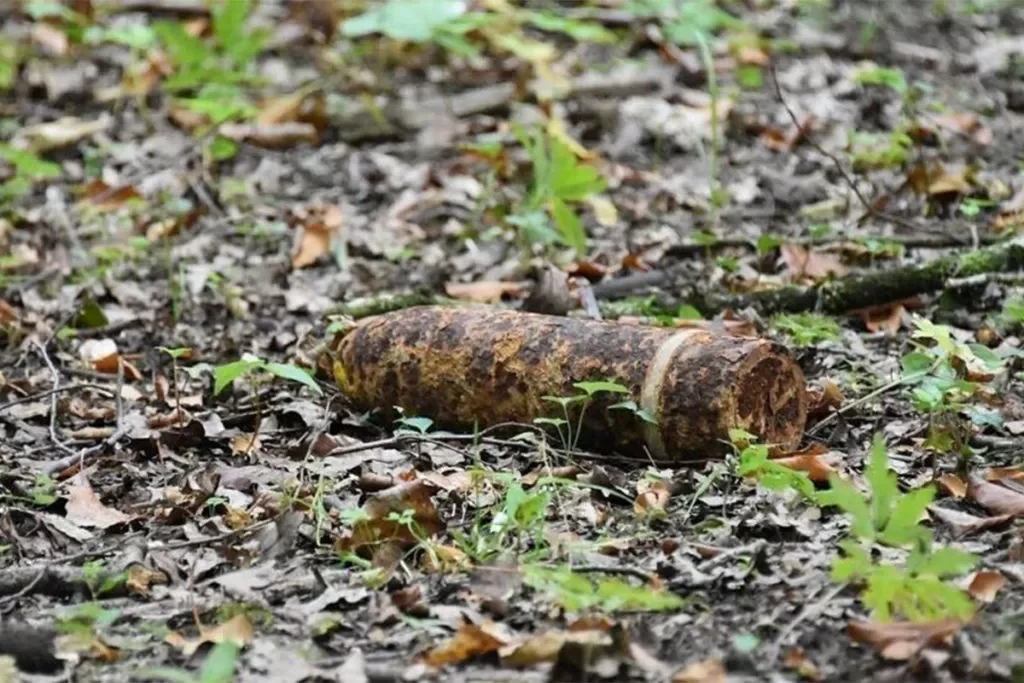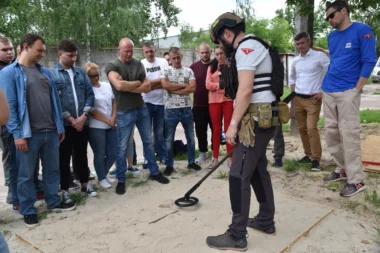International Mine Awareness Day: protecting lives, building peace

This is regularly illustrated by press reports of accidental explosions or discoveries of devices dating from the First and Second World Wars:
• “German WWI grenade found in potato shipment” (Feb. 2019)
• “Düsseldorf: 13,000 residents evacuate after WWII bomb dug up” (Aug. 2023)
• “Four injured after old WWII aircraft bomb explodes in Munich” (Dec. 2021)

Despite the passage of time, the return of peace and the emptiness of former battlefields, the threat remains. Some devices even become more unstable with time, and therefore can be more likely to explode with the slightest contact.
Unfortunately, the dangerous nature of these devices remains relatively unknown, which sometimes leads to unwise actions: “Woman drives hand grenade to police station in her car” (Jan. 2023); “Police station evacuated after mortar and grenade from Second World War handed in” (Nov. 2023). It is essential to remember that under no circumstances should you touch or go near any explosive remnants of war, and that you should immediately call the police or the relevant services if you find anything suspicious.

These incidents, which still occur despite the fact that Western Europe has not experienced war for several generations, underline the persistence of this threat and the positive impact of humanitarian demining in the long term. In Ukraine, Iraq and Afghanistan, millions of mines and items of unexploded ordnance are still scattered across towns, villages, fields and forests. “Without demining, it is impossible for farmers to cultivate their land without putting themselves in danger, or for people displaced by the combat to return home without the risk of stepping in the wrong place.”, explains Hansjörg Eberle, Director of FSD. The mines removed today will undoubtedly save lives for generations to come.

How to become deminer?
FSD’s deminers come from all walks of life: farmers, teachers, IT specialists and many others. Many have had their lives…
Humanitarian demining Iraq

Tourist destinations still marked by the scars of war
In the world, nearly one in three countries remains contaminated by landmines and explosive remnants of war, particularly across much of South-East…
Landmines and explosive remnants Colombia Iraq Sri Lanka

Beyond demining: preparing to hand over the reins
Faced with this reality, FSD — with the support of Switzerland — is working on two fronts: clearing land today,…
Humanitarian demining Prevention and risk education Ukraine